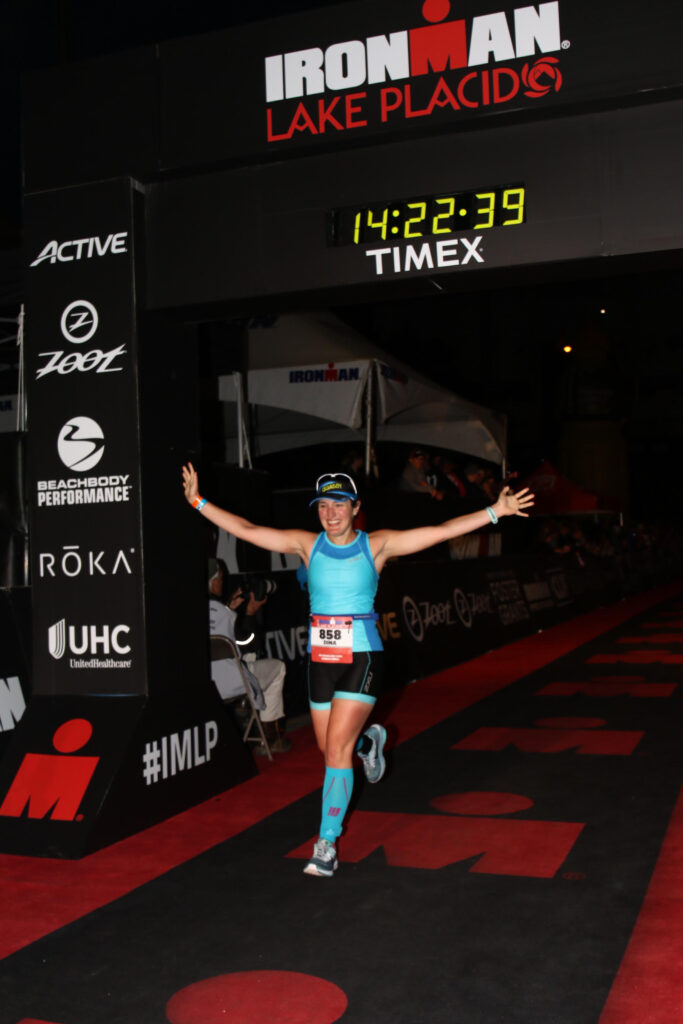
How long does it take to train for an Ironman?
Wherever you are in your triathlon journey, you’ve been hooked, and your eye is on the Ironman. You want to take on the 2.4-mile swim, 112-mile bike, and 26.2-mile run that makes a total of 140.6 miles of racing.
Maybe it’s been a goal since you started the sport. Maybe you saw your family or friends complete one and you got the urge.
Or maybe you watched the livestream of the finish line at Lake Placid for two hours straight after your friend ran through, and over the course of those two hours you went from “meh, I’m not even going to get a road bike or do an Olympic distance tri, I’m good with sprints on my mountain bike,” to “…holy sh*t, I have to do this.” (That was me.)
In this article, I’ll answer the initial question (how long does it take to train for one?) as well as these common questions:
- How long is an actual training block?
- How many hours per week should I expect to be training?
- How long will my LONG workouts be? What will weekend training look like?
- Do I have to run a marathon before doing an Ironman?
- Do I have to do a 70.3 before doing an Ironman?
- My training has been geared toward doing 70.3 races. How different will week to week training be when I jump up to the Ironman?
- I can’t get to the pool any more often than I’m going now. How will swim training change with this constraint?
- Do I need a coach?
- Should I expect to NOT have much of a life outside of training?
Let’s jump in.
How long does it take to train and be ready to complete an Ironman?
Well, it depends. Mostly on your current fitness level right now.
Let’s look at a few scenarios to determine appropriate timelines for completing an Ironman. Of course, you probably won’t fit one of these scenarios exactly, they’re just meant to be examples of athletes at various points in their triathlon journeys.
Scenario 1: You’re a brand-new triathlete, just having completed your first few sprint triathlons this past summer. Your next goal is to do the Olympic distance, but you’ve got your eye on the Ironman. You’re an okay swimmer, but you’ve never run more than a 10k and your longest ride has been about 30 miles. You don’t train as frequently or intensely as some of your fellow triathletes; you mostly do this for fun and to stay in shape.
Suggested minimum timeline: Two to three years, depending on how much time you’re able to dedicate. If you’re in no rush and you have a lot of other life commitments, I’d suggest working toward an Olympic next summer, a 70.3 (half Ironman) the summer after that, and THEN the Ironman the summer after that. (You could even push it out another year and get more experience doing another 70.3 and shorter races.) If you’re ready and able to buckle down over the winters, you can condense this down a year by doing an Olympic early next summer and a 70.3 toward the end of the summer, then the Ironman a year after that.
Scenario 2: You’ve been doing triathlons for a year or two – sprint races and a few Olympics – and your fitness is strong, having been an avid runner prior to discovering triathlon. You swim with a Masters team, and you’ve done a marathon and several other road and trail races. You consider yourself an intermediate triathlete, perhaps with some work to do on the bike.
Suggested minimum timeline: One to two years. You’ve got plenty of fitness, and if you wanted to commit to completing an Ironman in a year, you probably could. But you might benefit from a season focusing on improving your bike and first completing a 70.3.
Scenario 3: You’ve been doing triathlons for a few years now. You compete in a handful of sprint and Olympic races every summer, and you’ve got one or two 70.3s under your belt. You’ve run several half marathons, and your longest ride has been the 56-mile portion of the 70.3. You train very consistently, and you consider yourself to be in strong shape.
Suggested minimum timeline: Six months to a year. You’ve already got a lot of fitness and race experience, and you’re ready to dive in.
Now that we’ve established suggested timelines, let’s say you’ve gotten to a place where you’re ready to do an Ironman within a year. Now what?
Let’s go through the other common Q&As.
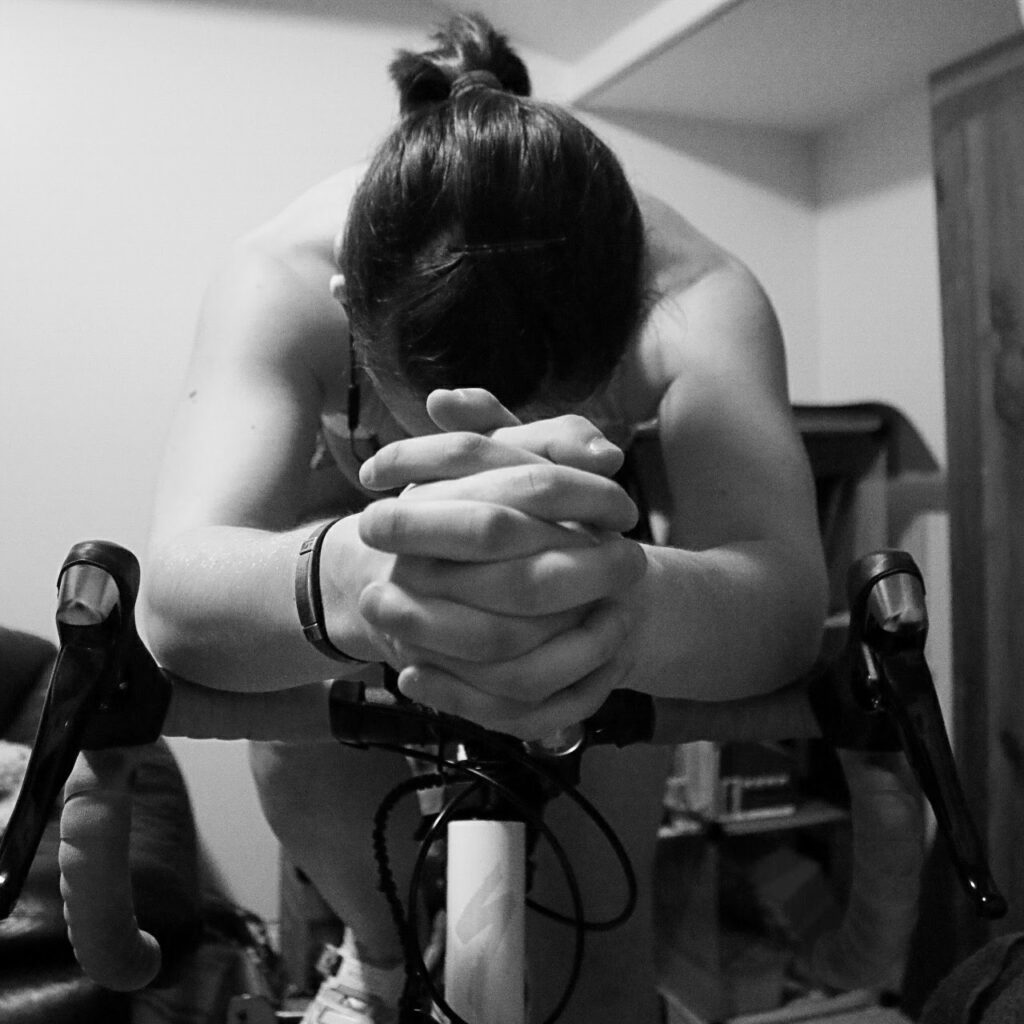
How long is an actual training block?
I would suggest a minimum of 24 weeks for your first Ironman. That’s a minimum; it can be longer, and arguably SHOULD be longer if your training hasn’t been very consistent. Much of the early weeks are what’s called “base training.” Having a solid base is key, so starting earlier than 24 weeks out won’t hurt if you’ve got a good training plan and coach!
To give you a sense of time, here are the approximate dates of a few popular Ironman races along with training start dates 24 weeks out:
- Ironman Texas, end of April: training starts mid-November
- Ironman Lake Placid, end of July: training starts mid-February
- Ironman Mont-Tremblant, end of August: training starts mid-March
- Ironman Chattanooga, end of September: training starts mid-April
- Ironman Florida, beginning of November: training starts end of May
Remember, if you don’t already have a solid base or haven’t been training much, you’ll need even longer than that!
How many hours per week should I expect to be training?
There isn’t one answer across the board; we’re all slightly different, and with my athletes I emphasize maintaining a balance between their training and the rest of their lives. So don’t worry if you’ve heard your peers talk about 20+ hour training weeks – if you don’t have that time, you can still train and do very well.
For most folks with jobs, other hobbies, and commitments who just want to complete their first Ironman, training will likely start out around 8-10 hours per week, and gradually increase to around 12-16 hours during the heaviest training weeks.
Again, it’s not required that you hit these hours as a minimum. It all depends on your training plan, your lifestyle, and your work with a coach to find the best path for you.
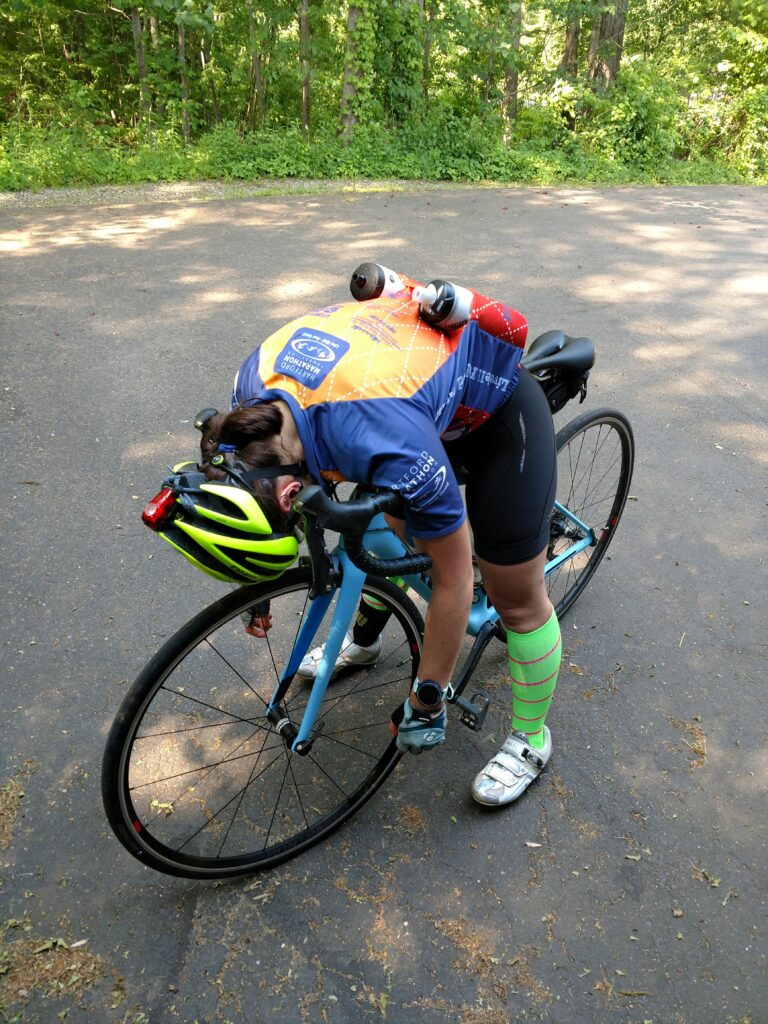
How long will my LONG workouts be? What will weekend training look like?
For most folks with full-time jobs, weekends are the most feasible time to complete longer rides and runs. If you have a flexible schedule, this doesn’t have to be the case, but that’s how I’ll discuss it since it applies to the majority of athletes.
As training progresses, so will longer weekend workouts. You should expect the most volume to occur on the bike – that is, the length of time you’ll be hanging out in the saddle, whether that’s on the trainer during inclement weather months or outdoors.
You’ll become very good friends with your bike, progressively working in longer and longer rides, typically all the way up to 100 miles.
It won’t be a completely linear progression; you’ll have “rest” weeks thrown in when the volume is cut back a bit before ramping back up again the following week.
Next step down in the level of volume is the run. You should expect to get used to doing many “brick” workouts – that is, completing a shorter run right after a bike ride, including your long ride.
You’ll complete longer and longer runs themselves on a separate day, but you won’t work all the way up to a marathon. I’ll talk more about this when I answer the next question.
Swimming will make up the least amount of volume; you won’t have marathon swim days over the weekend. It’s more important to get in aerobic swims and lots of open water practice as the race grows nearer.
It’s important to note that these longer workouts won’t be at a very high intensity. You won’t be going out and doing strenuous interval runs for two hours.
Ironman training is about endurance. Your long sessions will be fairly easy, with the goal of building aerobic capacity and ensuring your body can keep going at that effort for long enough to complete the all-day race.
Do I have to run a marathon before doing an Ironman?
Nope.
If you WANT to run a marathon, that’s fine, but it should be in its own separate training cycle BEFORE beginning that ~24-week Ironman training plan.
This is because training for the two is going to look much different.
Marathon training:
-A focus on running while dialing back swimming and biking
-Long runs progressing to 20 or 22 miles
Ironman training:
-A focus spread among swimming, biking, and running (and specifically running off the bike)
-Potentially fewer long runs, not exceeding 2 ½ – 3 hours depending on an athlete’s pace and running history
Working up to a marathon in the few months before an Ironman is simply too taxing on the body, and it doesn’t allow enough recovery time to bounce back for the Ironman.
Don’t worry if the Ironman will be your first marathon. They’re two entirely different beasts!
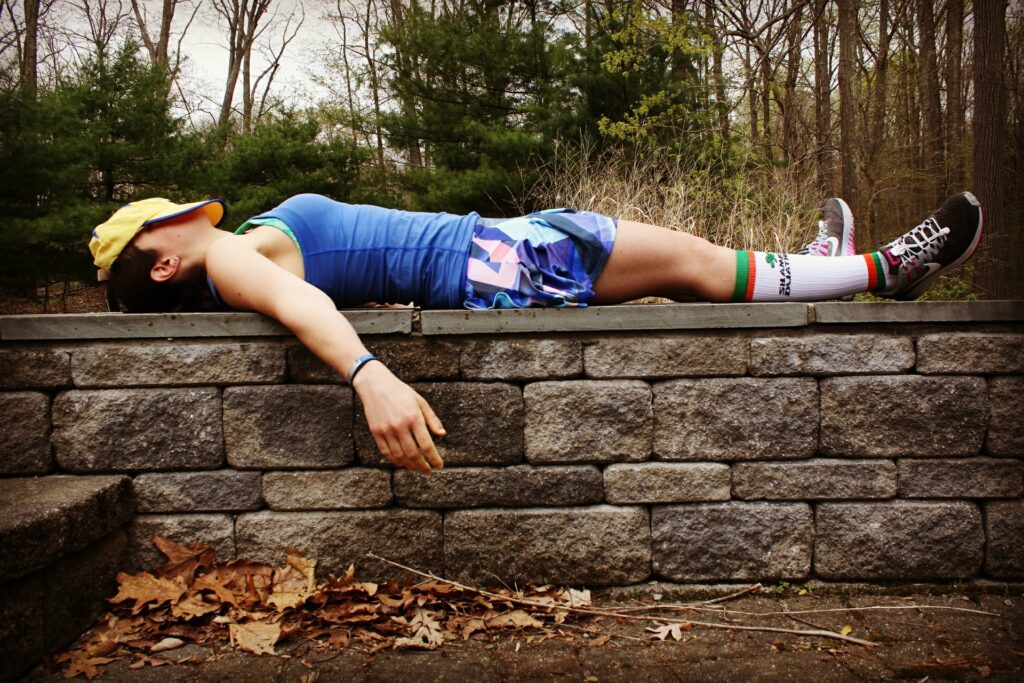
Do I have to do a 70.3 before doing an Ironman?
You don’t HAVE to, but I strongly recommend it. You’ll gain experience at the longer distance before jumping all the way up to the full, and you’ll get more chances to practice nutrition strategies in a longer race.
No matter if you focus on a 70.3 first for a year or two or decide to forgo it, it’s a good idea to complete a 70.3 during Ironman training itself. This will help gauge your fitness, and again give you long-distance race and nutrition practice.
My training has been geared toward doing 70.3 races. How different will week to week training be when I jump up to the Ironman?
You may think your training volume should double, since a full Ironman is twice the distance as a 70.3.
Assuming you’re putting in a solid 8-12 hours of training during heavy weeks for the 70.3, that won’t be the case. Doubling your load is too taxing on the body and could result in overtraining and injury.
As I mentioned before, heavy Ironman training weeks are closer to 12-16 hours. It’s a substantial increase, but not double.
Your workouts during the week will be a little bit longer and a little bit less intense – again, endurance is the focus for a full Ironman. You likely still had some higher-intensity workouts as you trained for a 70.3; you’ll see fewer of these for the full, and they’ll look slightly different.
Your long weekend workouts are really where most of the difference lies. It’s important to gradually work up to a 100-mile ride and a ~2 ½-hour run, sessions you almost certainly weren’t doing while training for a 70.3.
Something else that might need more of your focus is recovery. Whether that’s a stronger emphasis on nutrition, prioritizing sleep, foam rolling, mobility, massages, etc – it’s certainly important for 70.3 training, but it’s a non-negotiable for an Ironman if you want to get to the start line healthy and injury free.
To sum it up: week-to-week training minus the long stuff is a little longer and a little easier. The long stuff will be a lot longer, but also a little easier. Recovery is key.
I can’t get to the pool any more often than I’m going now. How will swim training change with this constraint?
If your availability to swim is set in stone, don’t worry too much. There are a few options here, depending on a couple of factors.
If you can only make it to the pool, say, 3 times per week, are you able to stay longer? For instance, an hour-long session instead of 45 minutes? Even if you’re able to do this only 1 time per week, it can make a bit of a difference.
Are you a weaker swimmer who is perhaps concerned about the Ironman cutoff time? Spending much of your early base training focusing on form and technique can help you get faster so you can get more out of the limited time you have.
Do you have more flexibility to get in open water swims, especially closer to your race? If weather permits, you can begin open water swim training as early as possible to get some extra time practicing long and continuous swims.
In any case, Ironman swim training will focus on longer distance-style sets with less rest at the wall. Because of this workout style, you’ll automatically be swimming more yards or meters in the same amount of time, which will help if you can’t increase your time in the pool.
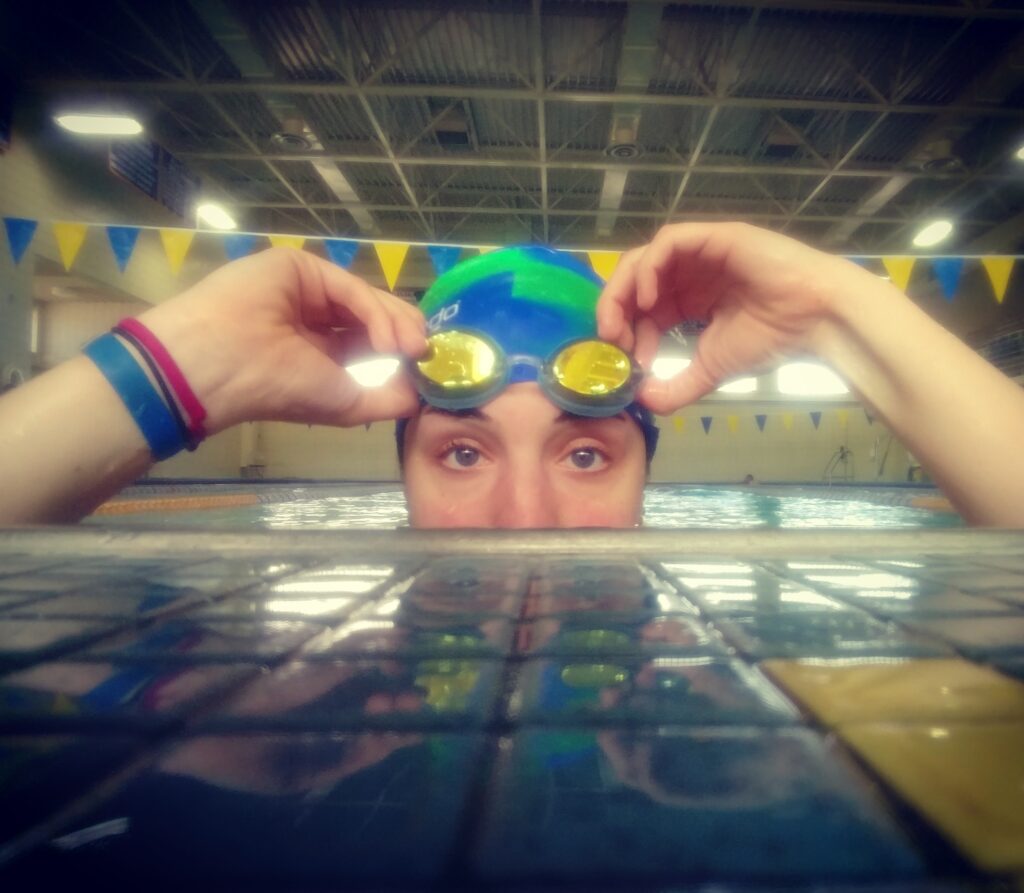
Do I need a coach?
Do you NEED to have a coach, otherwise there’s zero chance you’ll finish the race? Well, no. But I strongly recommend making the investment.
Like I mentioned before, it’s important for many folks with other commitments to strike a good balance between training and the rest of their lives. This can make the “puzzle” of a training plan particularly difficult to solve.
On which days should you train? How should you best fit in all three disciplines plus strength training, and how many days for each? What about workout length and intensity? What happens when something comes up and you have to shift things around? What if you get sick and miss a week?
These are questions you don’t have to answer when you have a coach. Your coach solves the puzzle for you, through frequent communication and an understanding of your fitness and day-to-day schedule. You don’t have to think about it.
Plus, there’s a strong support factor in having a coach. Even if you follow a canned training plan, it doesn’t know anything about your fitness level, history, and availability. A coach will design a plan based on where you’re at right now to avoid overtraining, undertraining, or injury.
They’ll give you feedback, they’ll know how to best modify your plan for something like illness, and they’re there to answer your questions. The plan they write is specific to YOU, and they’ll work WITH you for any adaptations along the way.
Not to mention the accountability factor. It’s much easier to skip a workout when it’s not listed on a calendar that your coach will be reviewing frequently. They’re there to help to keep you on track throughout the entire process leading up to your race.
Need more convincing, or want to explore the idea of hiring a coach? Send me a quick message! No commitment required, we’ll just chat about your concerns and about how I might be able to help.
Should I expect to NOT have much of a life outside of training?
Training for an Ironman is a commitment. There’s no way around it. It’s going to take some compromise and sacrifice.
If you have a full-time job with a long commute, you may find the only way you’re going to get in all of your training on certain days is to get up at 4 am (and subsequently go to bed before the sun goes down the night before).
You may have to leave social events early or decline them sometimes, if they fall before an 80-mile ride and you need to practice your pre-race nutrition strategy.
But, as I said earlier, it’s a balance. Ultimately, YOU get to decide your level of commitment.
Ask yourself: what am I willing to give up? What am I NOT willing to give up?
I’d encourage you to find that balance. Remember, you’re looking to finish your first Ironman, not win the race or break any records. Don’t miss out on important events in your life, like a family member’s wedding or your child’s championship game.
It’s okay if you only get 6 hours of sleep one day because of such an event, as long as it doesn’t happen several times a week or before every long training day.
Training doesn’t have to look perfect; in fact, it won’t. You’ll likely have to modify something in your plan along the way.
I sprained my ankle a couple months out from my first Ironman, and I had to back off my running for a couple weeks. I got back on track.
This past summer I coached two athletes completing their first Ironman, and both of them got COVID at some point during their training. They took the necessary time off and got back on track.
My point is, training won’t be perfect even if you strive for it, so you can still have a life.
Make no mistake, Ironman training is a commitment, and if you don’t put the work in, you won’t get the results you want.
But you don’t have to make it the center of your universe and ignore everything and everyone else around you for the better part of a year.
Hopefully this clears up some of your questions if you’re on the fence about signing up for an Ironman!
If I missed anything you’re curious about, if you have any follow-up questions, or if you’re ready to dive in and want to chat about getting a personalized training plan, send me a message! Becoming an Ironman is a massive accomplishment, and I’d love to have a conversation about how I can help you get there.
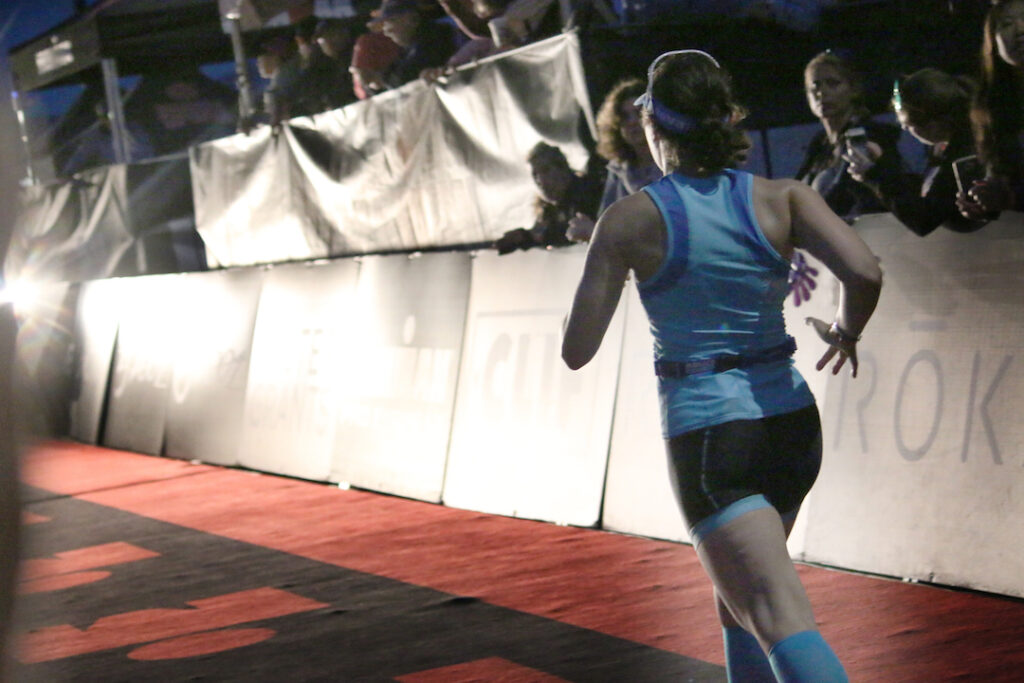
Happy training!
-Dina
Dina Grimaldi is a triathlon & nutrition coach who helps athletes reach their goals while finding the balance they need to fit training comfortably into their lives, and who guides and supports those with nutrition or health goals to cultivate a lifestyle of sustainable habits and a healthy relationship with food.
